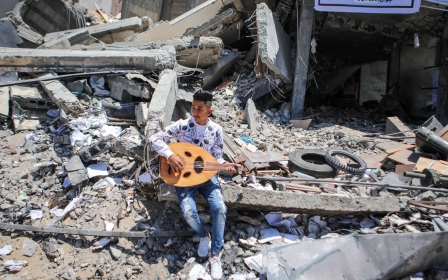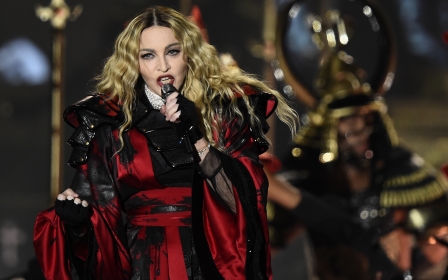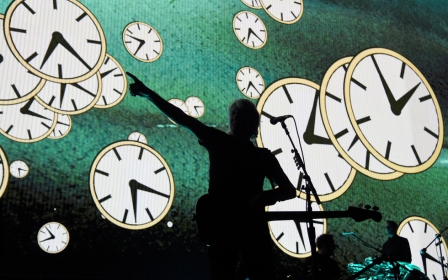Israel says Hamas hacked webcast of Eurovision semi-final

Israel’s national broadcaster has blamed the Palestinian group Hamas for hacking its webcast of the Eurovision song contest semi-final on Tuesday, but said the hacking did not alter the regular television relay of the show.
Hamas, a Palestinian organisation that governs the besieged Gaza Strip, did not immediately comment on the accusations.
On Tuesday, the Israeli Public Broadcasting Authority’s (Kan) website was hacked during its airing of the first semi-final of the contest.
A video of missiles landing in Israel appeared for a few minutes instead of the live broadcast, with the message: "Risk of Missile Attack, Please Take Shelter".
New MEE newsletter: Jerusalem Dispatch
Sign up to get the latest insights and analysis on Israel-Palestine, alongside Turkey Unpacked and other MEE newsletters
Kan, however, played down the hack and blamed it on Hamas.
"We know that at a certain stage there was an attempt, apparently by Hamas, to commandeer our digital broadcast," Kan CEO, Eldad Koblenz, told Israel's Army Radio.
"But I am happy to say that within a few minutes we managed to assume control over this phenomenon."
Eurovision 2019: Why is Israel hosting the song contest?
+ Show - HideThe name of the singing contest suggests it’s a European affair, so why is Israel, a country in the Middle East, able to participate and why is it hosting this year’s contest?
Eligibility for Eurovision is not based on geography but membership of the European Broadcasting Union (EBU), which organises the event, and the Israeli Public Broadcasting Corporation is a member.
Technically, this means that Arab countries including Egypt, Jordan, Lebanon, Syria, Morocco and Tunisia are also eligible to participate.
In fact, Morocco took part in 1980 after Israel withdrew because the date of the contest overlapped with the Jewish holiday of Passover.
Israel first entered Eurovision in 1973 and has won the competition four times, including last year when Netta Barzilai won in Portugal. It previously hosted the event in 1979 and 1999, both times in Jerusalem.
Greece, Belarus, Serbia, Cyprus, Estonia, Czech Republic, Australia, Iceland, San Marino and Slovenia made it through to Saturday's finals.
The second semi-final is scheduled for Thursday, and the final on Saturday.
Calls for boycott
This year’s contest, hosted in Tel Aviv, is being held amid calls for boycotting the show by pro-Palestinian groups.
The hashtag #BoycottEurovision2019 was used by social media users worldwide to highlight human rights abuses and the plight of Palestinians who are living under Israeli occupation.
The Boycott, Divestment and Sanctions (BDS) movement, which campaigns for ending international support for Israel over its treatment of Palestinians, said on Tuesday that the number of tourists flying to Israel to see the show was expected to be 5,000, compared with 90,000 in Lisbon, where the event was held last year.
Madonna, the American pop star, rebuffed calls by pro-Palestine campaigners to boycott the event. Her guest performance at the Eurovision final will go ahead as planned.
Singers Lana Del Rey and Lorde both cancelled planned tours of Israel in 2018 after heeding calls from BDS campaigners to not perform in the country in solidarity with Palestinians.
Fashion designer Vivienne Westwood and Pink Floyd singer Roger Waters were among dozens of figures who urged the BBC earlier this year to not broadcast Israel's hosting of the contest.
Last year, a total of 186 million people watched the semi-finals and the finals, according to the European Broadcasting Union, which organises the contest..
Middle East Eye delivers independent and unrivalled coverage and analysis of the Middle East, North Africa and beyond. To learn more about republishing this content and the associated fees, please fill out this form. More about MEE can be found here.





